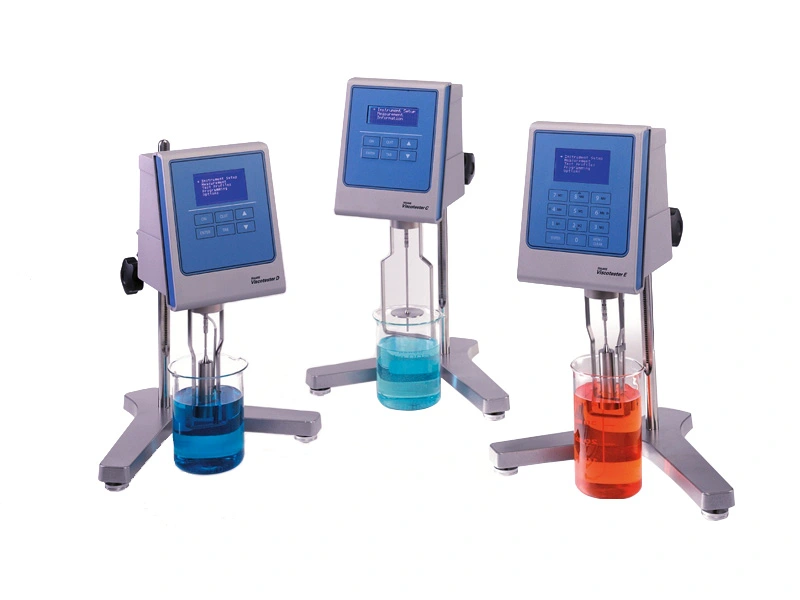Viscosity is a parameter used to measure the consistency of liquid materials, indicating whether they are thin or thick. It refers to the resistance to flow that occurs when molecules slide within the liquid. In simpler terms, viscosity quantifies the fluid's resistance to flow. Commonly used units for measuring viscosity are centipoise (cps) and millipascal-second (mPa.s). Essentially, higher viscosity denotes a more viscous and resistant-to-flow liquid, while lower viscosity indicates easier fluidity.
 viscosity detection of liquid materials
viscosity detection of liquid materials
1. Factors affecting viscosity
Viscosity is influenced by multiple factors, including pressure and temperature. While pressure tends to have a negligible effect on the viscosity of liquids, extremely high pressures can result in increased viscosity. Temperature, on the other hand, has the most significant effect on viscosity. The following section focuses on the influence of temperature on viscosity.
From everyday experience, it is commonly known that the viscosity of liquids tends to change with temperature. In general, the viscosity of most liquids decreases as the temperature rises. For example, when honey or syrup is heated, they become more fluid, indicating a decrease in viscosity. Similarly, the viscosity of water at 5°C is 1.5 cps, but at 20°C, it decreases by a third to 1.0 cps. Therefore, it seems that the viscosity of liquid silicone materials might appear thicker in winter compared to summer.
The temperature has a significant impact on the viscosity of most liquids. Viscosity is highly dependent on temperature, making it imperative to consider temperature when discussing viscosity.
2. Viscosity Reference Table for Liquid Materials
Note: The subsequent table is provided solely as a general reference. These values are averages and not specific data.
| Material Name | Viscosity (mPa·s or CPS) | Temperature (°C) |
|---|---|---|
| water | 1.79 | 0 |
| water | 1.00 | 20 |
| water | 0.65 | 40 |
| water | 0.28 | 100 |
| Olive Oil | 56.2 | 26 |
| Castor Oil | 580 | 27 |
| Castor Oil | 36 | 80 |
| Shampoos | 3,000 | 36 |
| Honey | 2,000-13,000 | 20 |
| Ketchup | 5,000-20,000 | 25 |
| Rice Pudding | 10,000 | 100 |
| Peanut Butter | 10,000-1,000,000 | 20-25 |
| Salad Cream | 1,300-2,600 | 18 |
| Chocolate Syrup | 10,000 - 25,000 | 23 |
| Toothpaste | 70,000-100,000 | 18 |